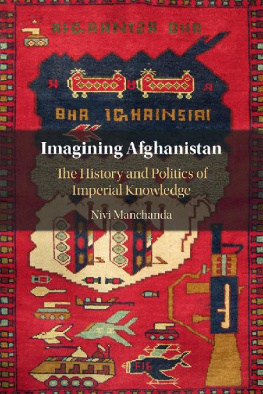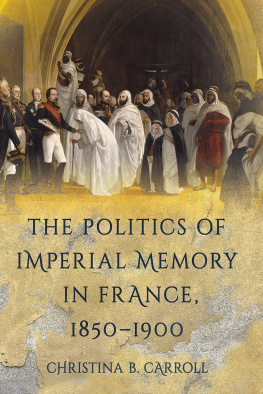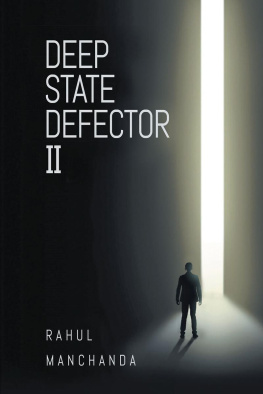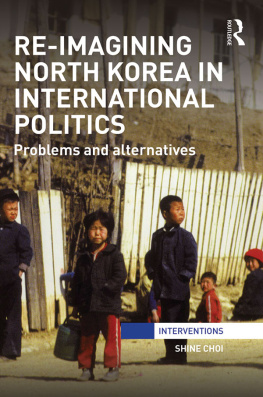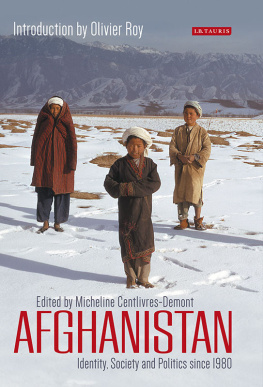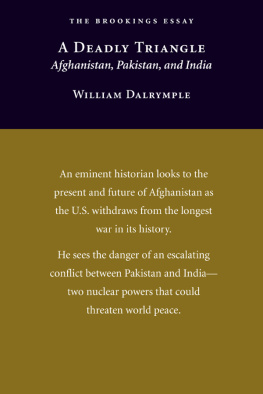Imagining Afghanistan
Over time and across different genres, Afghanistan has been presented to the world as potential ally, dangerous enemy, gendered space and mysterious locale. These powerful, if competing, visions seek to make sense of Afghanistan and to render it legible. In this innovative examination, Nivi Manchanda uncovers and critically explores Anglophone practices of knowledge cultivation and representational strategies and argues that Afghanistan occupies a distinctive place in the imperial imagination: over-determined and under-theorised, owing largely to the particular history of imperial intervention in the region. Focusing on representations of gender, state and tribes, Manchanda re-historicises and de-mythologises the study of Afghanistan through a sustained critique of colonial forms of knowing and demonstrates how the development of pervasive tropes in Western conceptions of Afghanistan have enabled Western intervention, invasion and bombing in the region from the nineteenth century to the present.
Nivi Manchanda is Senior Lecturer in International Politics at Queen Mary University of London. Her research interests include post-colonial theory, histories of race and empire, and gender studies. She is co-editor of Race and Racism in International Relations: Confronting the Global Colour Line (2014) and currently serves as editor-in-chief of the journal Politics .
Imagining Afghanistan
The History and Politics of Imperial Knowledge
Nivi Manchanda
Queen Mary University of London
University Printing House, Cambridge CB2 8BS, United Kingdom
One Liberty Plaza, 20th Floor, New York, NY 10006, USA
477 Williamstown Road, Port Melbourne, VIC 3207, Australia
314321, 3rd Floor, Plot 3, Splendor Forum, Jasola District Centre, New Delhi 110025, India
79 Anson Road, #0604/06, Singapore 079906
Cambridge University Press is part of the University of Cambridge.
It furthers the Universitys mission by disseminating knowledge in the pursuit of education, learning, and research at the highest international levels of excellence.
www.cambridge.org
Information on this title: www.cambridge.org/9781108491235
DOI: 10.1017/9781108867986
Nivi Manchanda 2020
This publication is in copyright. Subject to statutory exception and to the provisions of relevant collective licensing agreements, no reproduction of any part may take place without the written permission of Cambridge University Press.
First published 2020
Printed in the United Kingdom by TJ International Ltd, Padstow Cornwall
A catalogue record for this publication is available from the British Library.
Library of Congress Cataloging-in-Publication Data
Names: Manchanda, Nivi, 1988 author.
Title: Imagining Afghanistan : the history and politics of imperial knowledge / Nivi Manchanda.
Description: New York : Cambridge University Press, 2020. | Includes bibliographical references and index.
Identifiers: LCCN 2019055988 (print) | LCCN 2019055989 (ebook) | ISBN 9781108491235 (hardcover) | ISBN 9781108811767 (paperback) | ISBN 9781108867986 (epub)
Subjects: LCSH: AfghanistanStudy and teachingGreat Britain. | AfghanistanStudy and teachingUnited States. | AfghanistanForeign public opinion, British. | AfghanistanForeign public opinion, American. | Knowledge, Theory ofPolitical aspectsGreat BritainHistory. | Knowledge, Theory ofPolitical aspectsUnited StatesHistory. | Public opinionGreat Britain | Public opinionUnited States. | Imperialism.
Classification: LCC DS355.2 .M36 2020 (print) | LCC DS355.2 (ebook) | DDC 958.1dc23
LC record available at https://lccn.loc.gov/2019055988
LC ebook record available at https://lccn.loc.gov/2019055989
ISBN 978-1-108-49123-5 Hardback
Cambridge University Press has no responsibility for the persistence or accuracy of URLs for external or third-party internet websites referred to in this publication and does not guarantee that any content on such websites is, or will remain, accurate or appropriate.
For nana, and in loving memory of nani
But last year stories began to reach us from the capital of unrest among the barbarians. Traders travelling safe routes had been attacked and plundered. Stock thefts had increased in scale and audacity. A party of census officials had disappeared and been found buried in shallow graves. Shots had been fired at a provincial governor during a tour of inspection. There had been clashes with border patrols. The barbarian tribes were arming, the rumour went; the Empire should take precautionary measures, for there would certainly be war.
Of this unrest I myself saw nothing. In private I observed that once in every generation, without fail, there is an episode of hysteria about the barbarians. There is no woman living along the Frontier who has not dreamed of a dark barbarian hand coming from under the bed to grip her ankle, no man who has not frightened himself with visions of the barbarians carousing in his home, breaking the plates, setting fire to the curtains, raping his daughters. These dreams are the consequence of too much ease. Show me a barbarian army and I will believe.
The Magistrate in J. M. Coetzee, Waiting for Barbarians , 1980
Contents
Figures
Acknowledgements
In an interview Fred Moten once intimated that if we think something (a piece of music, a painting, a text) belongs to an individual, it is probably because we didnt look closely enough. One need not read between the lines to realise that this book too is a product of what academics increasingly label co-production. It emerges out of an industry renowned for its practices of appropriation, expropriation, silencing and discrediting, and as such it is implicated in those invariably racialised, gendered and classed processes of knowledge production. But it is also a product of intellectual community, political solidarity and enduring friendships.
In the past ten years I have amassed innumerable debts: from the early days of my PhD, I had the active and invaluable support of Duncan Bell and Tarak Barkawi at the University of Cambridge. In London, many brilliant generations of PhD students based at the LSE read drafts, shared insights and drinks and made an indelible impact on the project. I am lucky to be able to call Charmaine Chua, Ali Howell, Kerem Nisanioglu, Olivia Rutazibwa, Jesse Crane-Seeber, Paul Kirby, Michael Bloomfield, Kathryn Fisher, Melanie Richter-Montpetit, Rahul Rao, Akanksha Mehta, Ida Roland Birkvad, Kelly-Jo Bluen and Kate Millar my friends, and their influence can be felt palpably on the pages of Imagining Afghanistan. Martin Bayly, Jonathan Ludvig and Kurt Jacobsen read the manuscript in full, and the book is a much stronger piece of scholarship for it. I owe special thanks to James Eastwood and Chris Rossdale for their close reading of countless drafts, hours of conversation and general ability to discuss the minutiae of this project from its inception to its completion. Words will not do justice to how much I have learned from them over the years, and how much I value their friendship. Lisa Tilley and Sara Salem have been sources of untold wisdom, wit and warmth, and their confidence in this project was often infectious enough for me to overcome my own lingering doubts about it. They have shaped my thinking profoundly, and I hope this book is worthy of their faith in me. There are far more people some of them close friends, others whose brilliance Ive only encountered fleetingly at conferences who have had some input on Imagining Afghanistan than I can thank in this space. I hope they will forgive me for their absence, which is only an absence on paper.



